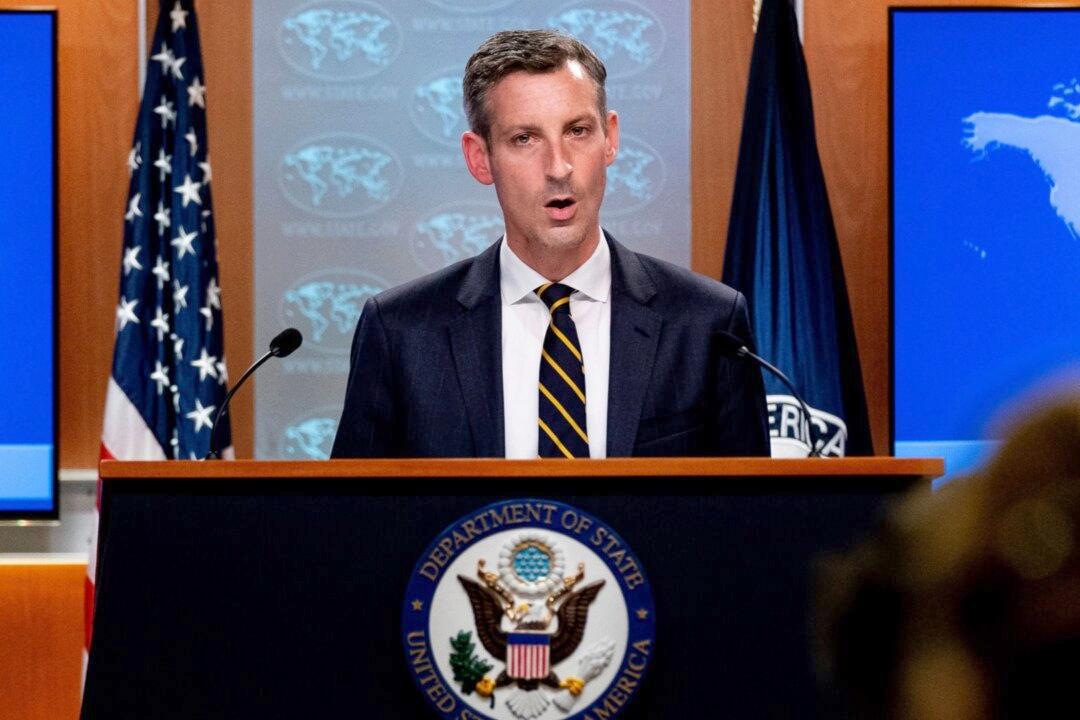The United States said on Monday that its security supports for regional allies serve no hostile aim toward North Korea, rejecting North Korea’s claims that joint military drills in the region are “provocative” actions.
U.S. State Department spokesperson Ned Price said that North Korea’s recent missile launches pose a threat to the United States and its regional allies, but the United States will not change its stance on North Korea.





